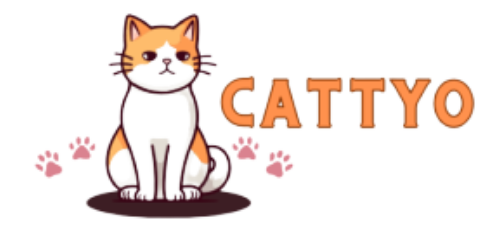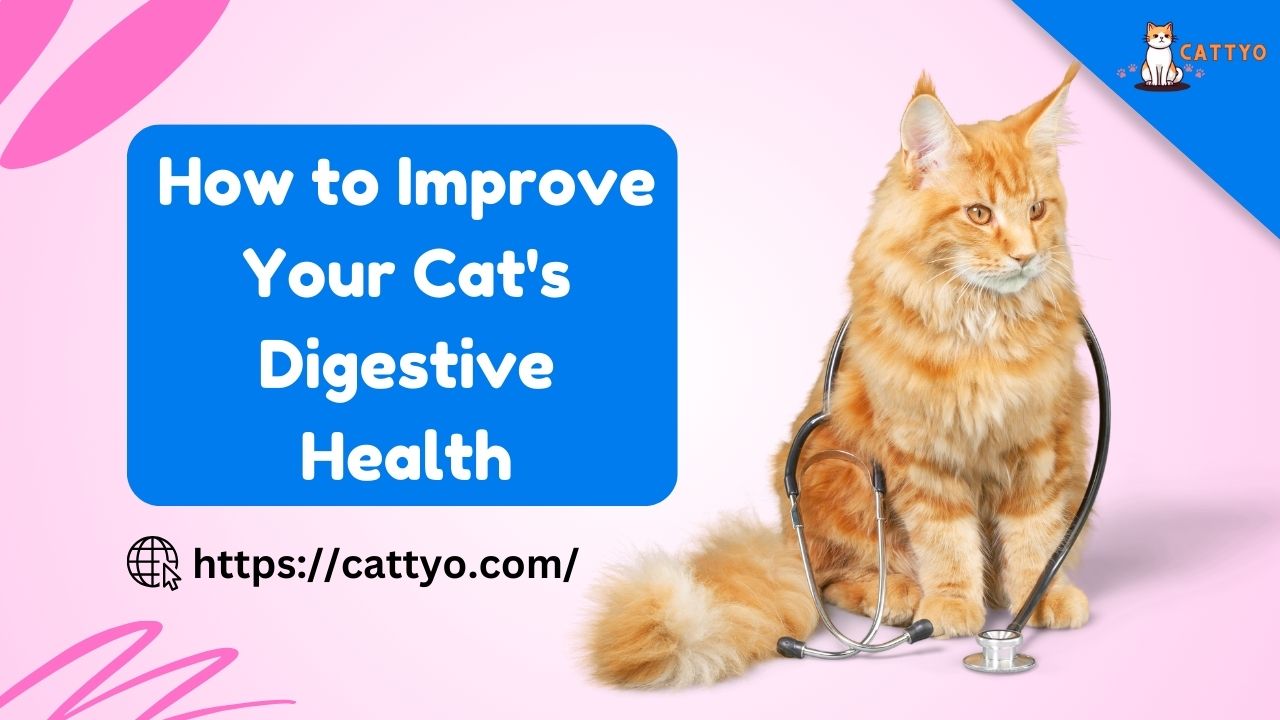You’ve probably heard the saying, “A happy cat is a healthy cat,” but did you know that good digestive health is one of the key ingredients in that happiness?
Yep, it’s true! Just like us humans, cats can suffer from digestive issues that can affect their overall well-being, energy, and mood.
So, let’s dive into the world of feline digestion and explore how you can keep your kitty feeling their best!
The Digestive System: A Cat’s Inner Workings
Okay, let’s start with a little biology lesson (don’t worry, this will be short). A cat’s digestive system is pretty similar to ours in that it’s responsible for breaking down food, absorbing nutrients, and getting rid of waste.
But, here’s the twist: cats are obligate carnivores, meaning they need a diet that’s rich in animal-based proteins to thrive.
So, what happens if they don’t get the right foods, or they eat something that doesn’t sit well with them? Oh, boy. Let’s just say you might be dealing with some unpleasant consequences—like hairballs, vomiting, diarrhea, or constipation. Gross, right?
That’s why it’s crucial to keep your cat’s digestion on track. Let’s chat about some practical ways to do that.
1. Feed High-Quality, Animal-Based Food
So, here’s the deal: cats need meat. Not just any meat, though. High-quality animal protein is essential.
You’ll want to steer clear of overly processed food, which can contain fillers and preservatives that your cat’s stomach just doesn’t love.
Think about it—would you want to eat something that’s basically synthetic and hard to digest? Neither would I, and neither does your furry friend.
Look for brands that list real meat as the first ingredient—like chicken, turkey, or salmon. Some cats even thrive on raw or lightly cooked food (but make sure to talk to your vet about that first).
When you switch up your cat’s food, though, go slow! Cats have sensitive tummies, and a sudden change in diet can cause upset stomachs and unnecessary stress.
Pro Tip:
Try to offer wet food, as it contains more moisture. This helps with hydration and can keep things moving through your cat’s system more smoothly. It’s like a little internal spa day for their digestive tract!
2. Keep Things Moving with Fiber
Okay, so let’s talk about fiber. Fiber is a big deal when it comes to digestive health, and just like us, cats need the right amount of it. Too little? They get constipated. Too much?
They might have some explosive bathroom situations. Balance is key!
Most high-quality commercial cat foods include fiber from sources like pumpkin or psyllium, which are both great at keeping things moving.
If you’re dealing with a constipated cat (I know, it’s a little sad), adding a small amount of pure pumpkin (not the pie filling, though!) to their food can work wonders. It’s like a little fiber boost to help keep their digestive system happy and regular.
And don’t forget about hydration! Cats don’t always drink enough water, especially if they’re on a dry food-only diet.
So, be sure to keep their water bowl fresh, and consider incorporating wet food into their meals to increase their fluid intake.
3. Probiotics: Little Helpers for the Gut
Have you ever taken probiotics yourself? Well, your cat might need a little digestive support too, especially if they’ve been dealing with digestive issues like diarrhea or gas.
Probiotics are friendly bacteria that help maintain the balance of the gut flora and support healthy digestion.
There are special probiotics designed for cats, which can come in powders, treats, or capsules. I personally like to add a sprinkle of powdered probiotics to my cat’s food every now and then.
It’s a little extra boost that can help soothe an irritated tummy and promote a healthier digestive tract.
A Quick Note:
Always check with your vet before introducing any new supplements into your cat’s diet. Some cats may have specific needs, and it’s always best to err on the side of caution.
4. Watch Out for Hairballs
Now, let’s talk about a cat’s most annoying digestive issue: hairballs. I’m sure you’ve experienced it—your cat doing that almost adorable throat-clearing thing, followed by an unsightly (and smelly) hairball on the rug. Yikes!
Hairballs are a common problem, especially for long-haired breeds, like Persians or Maine Coons.
To help with this, regular grooming is your first line of defense. Brushing your cat’s coat reduces the amount of hair they ingest while grooming themselves.
Plus, it gives you both some quality bonding time, which, let’s face it, is never a bad thing!
Some foods are also designed to help with hairball control. These often include added fiber, which helps hair move through the digestive tract more easily.
So, if your kitty is a hairball factory, consider switching to a food specifically formulated for that.
5. Keep Stress to a Minimum
Here’s a fun fact that might surprise you: cats can be really sensitive to stress, and that stress can wreak havoc on their digestive system.
If your cat is stressed out, they may experience gastrointestinal upset, including diarrhea, constipation, or loss of appetite.
This is where a bit of detective work comes in. Has there been a lot of change in your cat’s environment lately? A new pet? A new person?
A move? Cats are creatures of habit, and they can be really sensitive to shifts in their routine. Keeping your cat’s environment calm and predictable can help reduce their stress and support their digestive health.
Some people use calming pheromone diffusers or sprays to help with this—products like Feliway are designed to mimic the natural pheromones that cats produce, which can help them feel more at ease. It’s like a spa day for their nerves.
Digestive Health Table: Quick Tips to Improve Your Cat’s Digestion
| Tip | What It Does | Why It Works |
|---|---|---|
| Feed High-Quality, Meat-Based Food | Provides the right nutrients for digestion | Cats need animal protein to thrive and digest well. |
| Add Fiber (Pumpkin, Psyllium) | Supports healthy digestion and regular bowel movements | Fiber helps move things along and prevents constipation. |
| Hydration (Wet Food, Fresh Water) | Ensures proper hydration for better digestion | Moisture helps prevent constipation and supports gut health. |
| Probiotics | Adds good bacteria to the gut | Promotes a balanced digestive system and gut health. |
| Regular Grooming | Reduces hair ingestion and hairballs | Less hair in the stomach means fewer hairballs. |
| Reduce Stress | Prevents digestive upset caused by anxiety | A relaxed cat has a healthier gut and smoother digestion. |
FAQs
1. What can I feed my cat to help with digestion?
If you’re looking to improve your cat’s digestion, choose food with high-quality animal protein, like chicken or salmon. Foods with added fiber (like pumpkin) can also help. And don’t forget about probiotics!
2. Can stress affect my cat’s digestive health?
Yes, stress can cause digestive upset in cats. It can lead to problems like diarrhea or constipation. Try to keep your cat’s environment calm and stable, and consider using calming products like Feliway if needed.
3. How can I stop my cat from getting hairballs?
Regular grooming and high-fiber foods designed for hairball control can help. Keeping your cat’s coat well-brushed reduces the amount of hair they ingest while grooming themselves.
Closing Remark
Your cat’s digestive health is crucial for their overall well-being, and by making a few simple changes, you can help ensure that their tummy stays happy and healthy.
Whether it’s providing high-quality food, increasing fiber, or reducing stress, the small things you do can make a big difference in your cat’s digestive system.
And hey, if you’re a little unsure about any of these changes, don’t hesitate to reach out to your vet. They can give you personalized advice based on your cat’s specific needs.
After all, you want your furry companion to live their best life, right?





